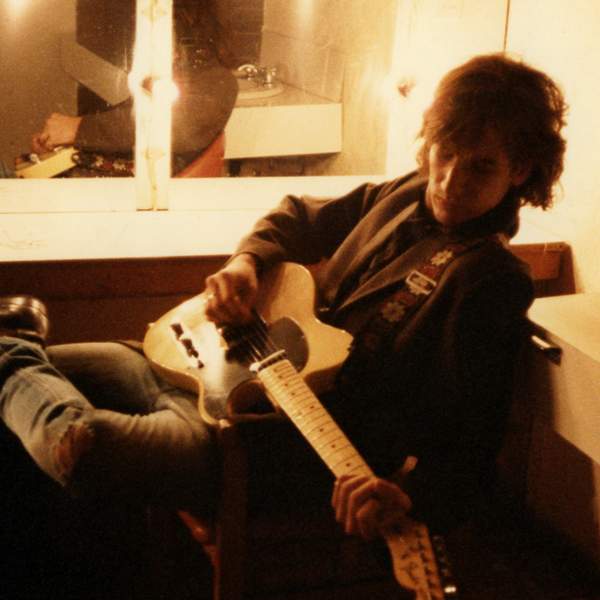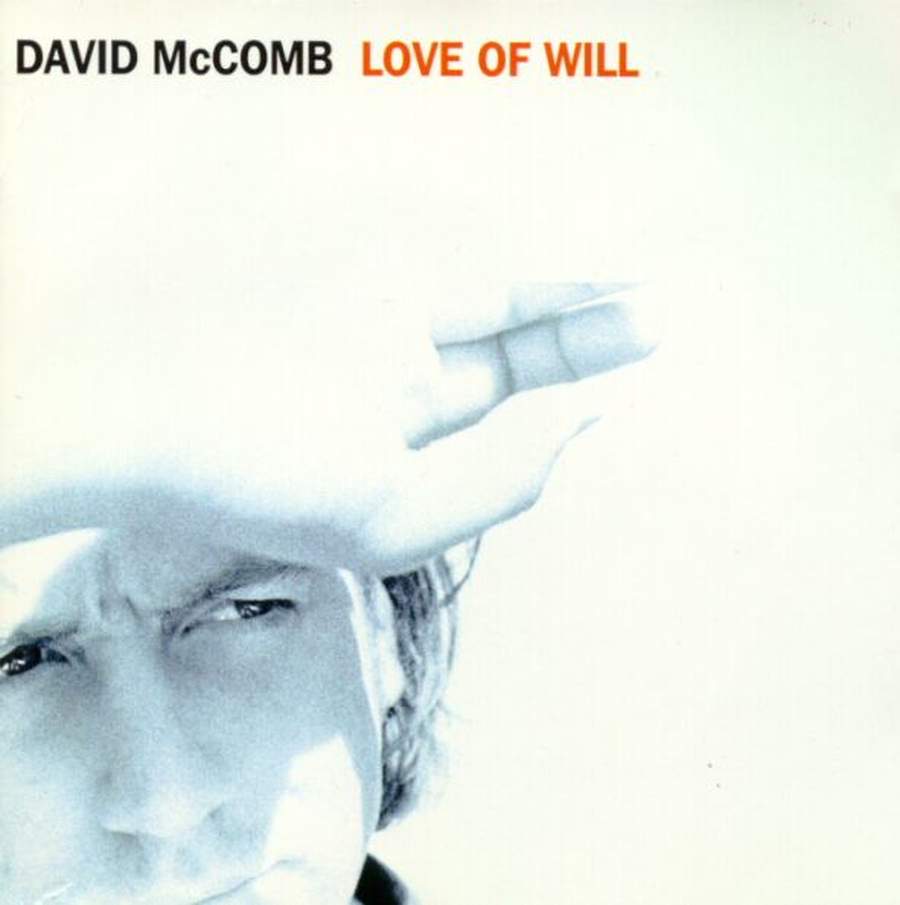Deeper Read: Why David McComb’s Deleted Solo Album Is a Lost Treasure

David McComb backstage in 1983
Photo by Julian Wu
Triffids founder and songwriter David McComb died 20 years ago this week – and his long deleted solo album Love of Will has finally been digitally re-released. Under the Sun’s Jonathan Alley, who’s wrapping up a documentary on McComb, reappraises a forgotten gem.
‘We’ve done our hell’s best not to be “modern”, ” David McComb told the late cultural theorist Niall Lucy in 1982. ‘“Modern” is always out of date.’ McComb, best known as the singer/songwriter of Perth act The Triffids, who died on 2 February 1999, was something of an aesthete, finding equal inspiration in writers Flannery O’Connor, Rainer Maria Rilke and Gertrude Stein (to name a mere few), as much as he drew from The Velvet Underground, Bowie, and the Perth punk of his teens. McComb engaged with painting, literature, poetry, film – and a vast array of music – all his life. If his own songwriting was initially informed by Leonard Cohen, Dylan, and CBGB-era punk, the compilation tapes he’d make for friends were eclectic: everything from Suicide to The Geto Boys, Evelyn ‘Champagne’ King, Willie Nelson, Kraftwerk, Prince and Dinah Washington (only a minor smattering).
He was also a wonderful contradiction. He adored trashy TV and had a keen ear for pop (cue Triffids covers of Madonna, Pet Shop Boys and New Order). In this way, he remained a true punk – everything was up for grabs. He was tickled when The Triffids’ classic ‘Bury Me Deep in Love’ was used for Harold and Madge’s wedding on Neighbours. And odds on, he’d have been chuffed that Kylie lent her vocals to subsequent cover of ‘Bury’ (with the late Jimmy Little) in 2001.
But if his tastes ran wide, in his own writing he was ever-faithful to The Song. The musical settings he created were based chiefly on their needs: his often cinematic imagery establishing place and character(s) immediately, informing their images with the atmosphere they required.
McComb’s only solo album, Love of Will, suddenly popped up on legal download /streaming services prior to Christmas. Originally released on Mushroom’s White Label in 1994, the album had fallen into a series of industry rights-holes and been long deleted (it’s still only available digitally). A quick scan of McComb’s discography might give the impression he’d cooled his heels between the final Triffids studio album (the eclectic carnivale that was 1989’s The Black Swan) and his solo debut. The reality was different: he’d spent the early ’90s in London, hammering out publishing demos for little reward, released a couple of programming-heavy solo singles and mounted the odd well-received solo show. He also worked intermittently with The Blackeyed Susans on two EPs and on returning to Australia made a significant contribution to 1993’s remarkable All Souls Alive, co-writing much of it and appearing on a few tracks.
Given its creator’s appetite for experimentation, his wide tastes and recent direction, some were surprised by Love of Will’s apparent adherence to some country, rock and folk influences on its original release.
But, as ever, the waters – artistically, stylistically and emotionally – run somewhat deeper than initial impressions. There are sonic smatterings of his UK era (the heavily programmed Deep in a Dream), and he described the opener ‘Clear Out My Mind’ as ‘a possibly futile attempt to imitate Al Green, if mounted with complete sincerity’ during our only meeting, at Triple R in 1994.
But the sense of longing that underpins much of his Triffids-era writing has turned inward, rotten and even self-loathing by Love of Will; the relationship dynamics he paints – and it’s inadvisable to assume they’re simply autobiographical – are hardly romantic. He described ‘Setting You Free’ as ‘a pleasant song about emotional S&M and the importance of asserting oneself as the weaker partner in any relationship, thereby gaining the upper hand.’

The protagonist in ‘Heard You Had a Bed’ is an out-and-out sexual charlatan, opportunistic, cynical and embittered. The main surprise in Love of Will though lies in some exploration of the spiritual: ‘The Lord Burns Every Clue’ expresses an ambiguity around faith, whereas the refrain in ‘Lifelike’ speaks of ‘Mathew, Mark, Luke and John (rolling away the stone but the body was gone)’.
Again, it’s foolhardy to ascribe literal interpretation. A common orthodoxy too easily accepted about The Triffids was that they invoked the Australian landscape through musical expression. True, the specifically West Australian setting of McComb’s childhood (and, more pointedly, adolescence) does give the songs a visually powerful context. But the songs themselves, more often than not, return to the central concern of most people. that being romantic love – giving it, getting it, not having it, and what one might be driven to, should it be taken away. So while scripture-inspired storylines and even the musical language of the hymn might inform some of Love of Will, McComb hadn’t undergone a religious epiphany any more than he’d gotten lost in the Gibson Desert before writing The Triffids’ Born Sandy Devotional. And yet, it’s perhaps agnostic ambivalence – an elusiveness of faith, rather than a dismissal of it, that underpins those songs.
What’s frustrating about the lack of (initial) recognition for Love of Will lies in its sense of culmination. The record doesn’t waste a track and seamlessly marries McComb’s instinct for the traditional and keen sense of the new – and it ably demonstrates his mastery of the art of vocal delivery. Already schooled in the art of phrasing via a long-time admiration of Dylan and Lou Reed, by Love of Will he’d also mastered the other vital elements. ‘By Love of Will Dave was really a singer,’ the album’s producer Nick Mainsbridge told me in 2015. ‘He was controlling temperature, the sound of his voice, the way he felt: unbelievable performance and control. The concentration required to be Dave McComb and to write to that level of detail […] was immense. You were expected to concentrate as much as he was … no mean feat for a mere human, like myself.’
McComb is long gone. But 20 years on, the gems that are his songs are as vivid as ever. And so indeed ‘modern’ remains ‘always out of date’; a multi-layered, metaphorically complex and highly polished set of songs, performed with the required rigour, make rare records like Love of Will ever-rewarding. With time and open ears, a relationship with this record (and indeed, all of McComb’s works) will only bring rich and ever-evolving rewards. It still reflects how diligently, instinctively and faithfully he served the needs of his own work.